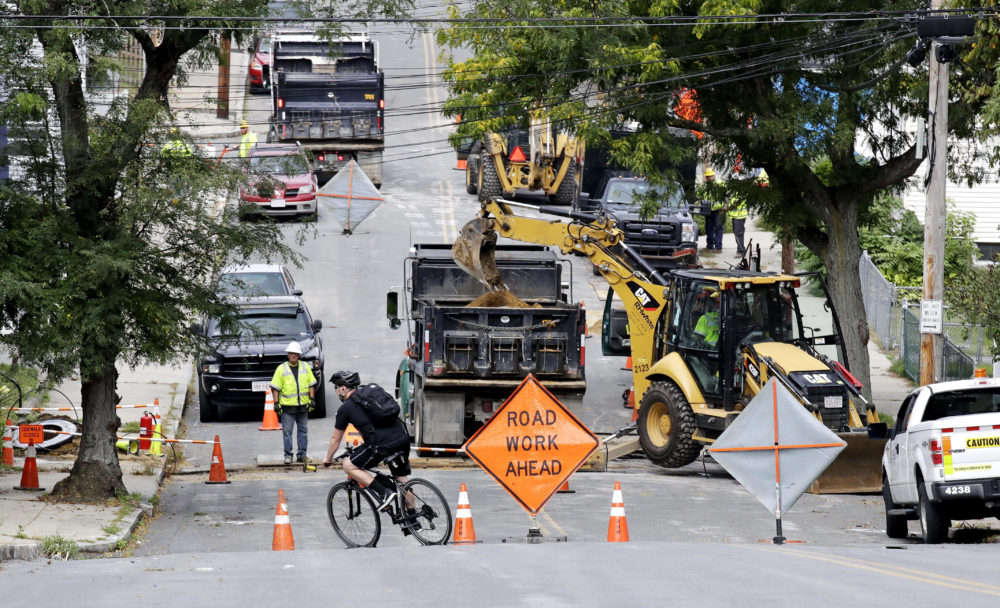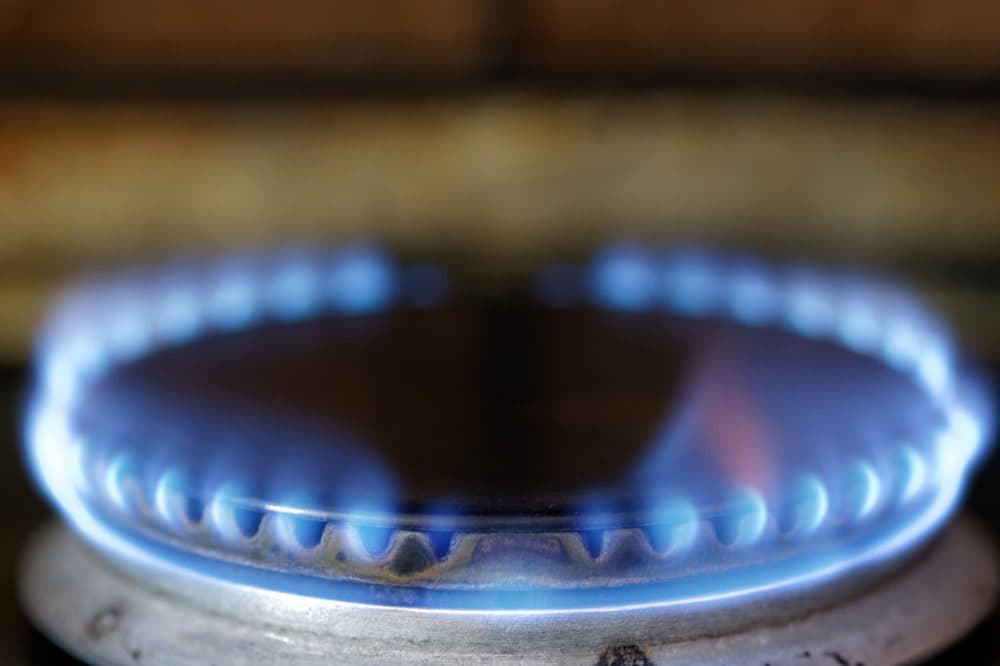Advertisement
Healey Asks State To Assess Future of Natural Gas Industry

Eyeing the state's goal of significantly reducing its greenhouse gas emissions over the next 30 years, Attorney General Maura Healey petitioned an arm of the Baker administration Thursday to formally assess the future of the natural gas industry in Massachusetts.
In an 18-page petition filed with the Department of Public Utilities, Healey asks that the department "examine the gas distribution industry, regulatory, and policy changes needed to support the achievement of the Commonwealth's mandated [greenhouse gas] emission limits" and then use that information to "determine what near- and long-term adjustments are necessary to maintain a safe and reliable gas distribution system and protect consumer interests as the Commonwealth transitions from fossil fuels to a clean, increasingly electrified, and decarbonized energy future by 2050."
In January, Gov. Charlie Baker announced he would accelerate the state's decarbonization efforts. The 12-year-old Global Warming Solutions Act required an 80 percent reduction below 1990 levels by 2050, but the new limit announced by the administration in April essentially puts the state on the path towards net-zero greenhouse gas emissions by 2050.
Under no circumstance, however, should the level of emission be greater than 85 percent below 1990 levels, the policy decrees.
"In order to combat the climate crisis and meet our clean energy goals, we must transition away from fossil fuels and change the way gas utilities do business in our state," Healey said. "We want the DPU to take a close look at the future of the natural gas industry in Massachusetts and make the policy and structural changes we need to ensure a clean energy future that is safe, reliable, and fair."
DPU officials were not made available Thursday to discuss Healey's petition and the department did not offer a response.
Healey's argument hinges on the idea that the state needs to reduce the use of fossil fuels in the building sector (for heating homes and offices) in order to meet the 2050 emissions reduction mandates, and that the decline in fossil fuel demand will require gas distribution companies to make significant changes to their planning processes and business models.

The attorney general said it also will require DPU to develop new policies and structures to ensure reliability and to protect ratepayers.
"Massachusetts must reduce use of natural gas to meet its important climate change goals, but that poses real threats to customers, especially low-income customers, many who can't afford to switch from natural gas to clean electricity heating systems," Charlie Harak, managing attorney for the National Consumer Law Center's energy unit, said. "We applaud the Attorney General for asking the Department of Public Utilities to investigate how we can manage this needed energy transition while still helping to ensure that all families can afford the energy they need to keep their homes warm."
Massachusetts deals with some of the highest energy prices in the country and state leaders have been at odds for years over whether the state needs more natural gas pipeline capacity. Baker's administration has expressed a desire to increase natural gas capacity into the New England region, but Healey and some Democratic lawmakers have in recent years argued that additional capacity is not the best solution to meet the state's longer-term energy demand needs.
The administration has said it plans to release a roadmap to meet its carbon reduction goals by the end of the year.
Healey said the DPU should be sure its investigation looks into what level of capital investment will be needed to ensure a safe and reliable gas system over the next 30 years if gas demand declines, whether state regulators need to update guidelines for reviewing gas companies' forecast and supply plans to require that they include additional data about transitioning away from natural gas as a heating fuel, and how DPU could ensure that heating bills for low-income residents do not skyrocket if gas demand drops.
The trade and business groups that together form the Mass. Coalition for Sustainable Energy, which has previously urged lawmakers not to abandon natural gas and instead expand access to it, said it is eager to be part of any evaluation of the future of natural gas in Massachusetts.
"We believe that a sustainable energy policy for the Commonwealth needs to be grounded in fact, technological and economic reality as well as all sources of energy that lower emissions sector generations," the group, which includes the Greater Boston Chamber of Commerce, Mass. Business Roundtable, and Associated Industries of Massachusetts among others, said. "We look forward to participating thoughtfully in a proceeding that seeks that type of evaluation."
National Grid, which has announced its own plans to reduce its "direct greenhouse gas emissions to net zero" by 2050, said it supports Massachusetts' carbon emissions reduction targets and will bring experience from other markets to any industry review that DPU might conduct.
"Across our US territory, in the face of ambitious decarbonization policies, we've done extensive work on gas supply and demand forecasting, and we'll leverage these learnings in the Commonwealth. We believe the most customer-beneficial decarbonization pathways will meet three criteria: ensuring energy safety and reliability, preserving customer affordability and adoptability, and enhancing resiliency in the face of increasing climate-related weather variability," the company said in a statement. "The Northeast is likely to need a tapestry of solutions for heat, and our research and experience shows us that the gas network can play an integral role, using new technologies to carry zero carbon fuels like renewable natural gas, including hydrogen, or enabling geothermal districts."
If DPU launches the investigation that Healey has asked for, Massachusetts could become the third state (after California and New York) to engage a regulatory proceeding with the aim of proactively managing a transition away from natural gas.
Healey's office said New York's Public Service Commission opened an investigation this March to "ensure more useful and comprehensive planning for natural gas usage and investments in the state" and that California's Public Utility Commission launched a proceeding in January to "examine the challenges relating to the safety and reliability of the state's natural gas infrastructure, while the state focuses on achieving its long-term decarbonization goals."
In 2015, a study produced by Healey's office concluded that additional natural gas pipeline capacity is not the best solution to meet the state's long-term energy demand needs. While new interstate pipeline capacity would have consumer price benefits, the study found it would also carry significant up-front costs with risks for ratepayers of long-term commitments to pay for new infrastructure.